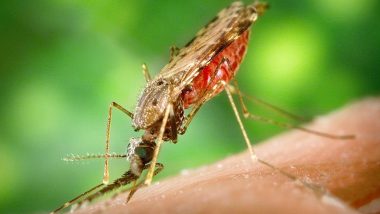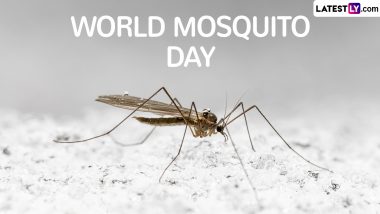The symptoms of malaria can develop as quickly as seven days when an infected mosquito bite you. But did you think malaria only causes fever, headache, nausea, abdominal pain, and diarrhoea? You were wrong! Malaria can prove fatal if not diagnosed and treated correctly. Pregnant women, babies, young children and elderly fall in this, particularly vulnerable group. The disease can result in severe complications, and here are the most common ones.
Cerebral Malaria
It has been seen that in some cases, malaria parasite affects the brain and ultimately cause brain damage. Also known as cerebral malaria, this condition can lead to paralysis and may even cause permanent brain damage.
Acute Respiratory Distress Syndrome (ARDS)
Children with severe malaria can suffer from respiratory distress or breathing problems. It is therefore essential to get them tested for probable diseases even if they feel slightly sick. Malaria Prevention: 7 Home Remedies to Stay Safe from the Mosquito-Borne Disease.
Haemolysis
The malaria parasite can also destroy the RBCs, which in turn can lead to severe haemolysis in some patients. In addition, the haemoglobin released from the destroyed RBCs can enter organs like kidneys and cause kidney failure.
Low Blood Sugar Levels
Low blood sugar levels are one common side effect of malaria and the malaria drugs that are being used to treat the disease. It is therefore essential to continually monitor the blood glucose levels to prevent further complications.Share These Catchy Slogans On Mosquito And Malaria To Raise Awareness Against World's Deadliest Animal!
Splenic rupture
Some patients with recurrent malaria also suffer from enlargement of spleen. Splenic rupture is also seen in patients with falciparum malaria or those who develop abdominal pain or shock. Coronavirus: Hydroxychloroquine - A Malaria Drug Endorsed For Preventive Use For Healthcare Workers Who Are Dealing With COVID-19 Patients.
Secondary Infection
Malaria can massively weaken your immunity, so the risk of developing a secondary bacterial infection like bacterial pneumonia or urinary tract infections or meningitis also increases.
Malaria can also cause anaemia due to the lack of RBCs in your body. It is, therefore, essential to eat immune-boosting and nutritious foods to beat further complications of malaria.
(The above story first appeared on LatestLY on Apr 25, 2020 10:00 AM IST. For more news and updates on politics, world, sports, entertainment and lifestyle, log on to our website latestly.com).













 Quickly
Quickly





















